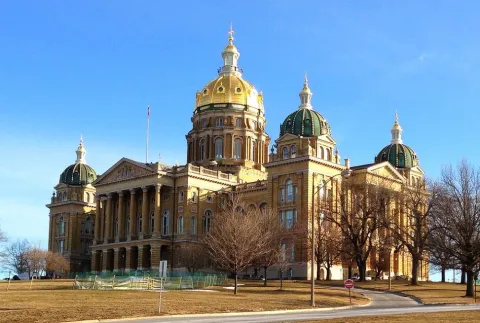
Iowa, often known as the "Hawkeye State," is an appealing destination for retirees seeking a comfortable and fulfilling lifestyle. With its combination of friendly communities, affordable living, and diverse cultural offerings, Iowa provides a welcoming environment for those looking to enjoy their golden years. This article explores the key aspects of living in Iowa, focusing on quality of life, cost of living, crime and safety, healthcare access, weather, and culture, with comparisons to the national averages.
Iowa consistently ranks high in overall quality of life due to its low population density, strong sense of community, and balanced pace of life. The state's residents enjoy a blend of urban amenities and rural charm, making it an ideal place for those who appreciate a quieter lifestyle. Iowa boasts a range of recreational activities, from hiking and fishing to cultural festivals and local theaters.
Compared to the national average, Iowa offers a relaxed atmosphere with less congestion and stress. The state also has a reputation for being family-friendly and supportive, with excellent public services and a strong education system.
One of the most attractive aspects of retiring in Iowa is its affordable cost of living. Housing, in particular, is significantly cheaper than the national average, with lower property taxes and utility costs. Groceries, healthcare, and transportation also tend to be more affordable, allowing retirees to stretch their retirement savings further.
Overall, Iowa's cost of living index is lower than the national average, making it an economically advantageous place for retirees looking to maintain a comfortable lifestyle without breaking the bank.
Safety is a critical concern for retirees, and Iowa generally offers a secure environment. The state has lower crime rates compared to the national average, particularly in terms of violent crimes. While property crimes are also lower than average, they can vary by area. Smaller towns and rural communities tend to have even lower crime rates, contributing to the state's reputation as a safe place to live.
Iowa's law enforcement agencies and community programs are active in maintaining public safety, providing peace of mind to its residents.
Access to quality healthcare is essential for retirees, and Iowa performs well in this regard. The state has a robust healthcare system, with several reputable hospitals and medical centers. University of Iowa Hospitals and Clinics, in particular, is nationally recognized for its medical specialties.
Iowa's healthcare costs are generally lower than the national average, making it an affordable option for retirees. The state also has a high number of healthcare professionals per capita, ensuring that residents have access to necessary medical services.
Iowa's overall tax burden is moderate compared to other U.S. states. The state imposes taxes on income, property, and sales, with income taxes being progressive, meaning higher earners pay a higher percentage. Iowa's property taxes are relatively high, which contributes significantly to its overall tax burden. However, the state's sales tax is around the national average, and there are no local option taxes in some areas, which helps to balance out the burden.
When compared to other states, Iowa does not rank among the highest or lowest in terms of overall tax burden. It falls in the middle range, making it comparable to many Midwestern states where the tax structure is balanced but slightly higher in property taxes. This makes Iowa a state where the tax burden is noticeable but not excessive, providing a stable environment for residents.
Iowa may not have the same cultural notoriety as some larger states, but it offers a rich and diverse cultural scene. The state is known for its local festivals, arts and crafts, and a strong sense of community. Events like the Iowa State Fair, Des Moines Arts Festival, and numerous county fairs highlight the state's agricultural heritage and local talent.
Compared to the national average, Iowa's cultural scene may seem more modest, but it is vibrant and community-oriented. The state is also known for its warm hospitality and neighborly spirit, making it easy for retirees to integrate into local communities and build meaningful connections.
Iowa experiences a full range of seasons, with cold winters and warm summers. Winter temperatures can dip below freezing, with snowfall being common. Summers are typically warm and humid, with average temperatures ranging from the mid-70s to mid-80s Fahrenheit.
Compared to the national average, Iowa's climate can be more extreme, especially in winter. However, many retirees appreciate the distinct seasons and the opportunities they provide for various recreational activities, from skiing in the winter to boating and fishing in the summer.
For retirees seeking a peaceful, affordable, and community-focused lifestyle, Iowa presents an excellent option. With its low cost of living, safe environment, accessible healthcare, and welcoming culture, the state offers a quality of life that compares favorably to the national average. While the weather can be a consideration, the distinct seasons add to the state's charm. Overall, Iowa provides a well-rounded and fulfilling environment for retirees to enjoy their golden years.




